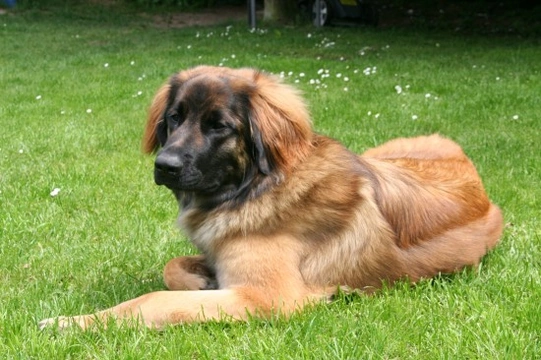
Leonberger dog health and longevity
The Leonberger is a giant breed of dog, and one of the largest around! Their name derives from their city of origin, being Leonberg in Germany, where legend has it that the breed was produced to mimic the appearance of the lion that makes up the city’s crest. The UK Kennel Club classes the Leonberger within the working dog grouping, and they are a dog of the mountain dog type.
Their early working roots include roles such as search and rescue, including within the water, and for livestock herding and guarding. They are one of the more desirable giant dog breeds when it comes to their popularity as pets, as they are renowned for being loyal, kind, adaptable and playful, and happy living within a family situation with children of all ages.
In this article, we will look at the health and longevity of the Leonberger dog, in order to give owners and prospective owners an insight into the health and wellness of the breed as a whole. Read on to learn more.
Leonberger longevity
Giant breeds of dog such as the Leonberger do not tend to be as long lived as their smaller counterparts, and the average lifespan of the Leonberger is just seven years, which is several years younger than most purebred dogs. However, this lifespan is typical of other dogs of a similar size and build, and around 20% of Leonbergers within the group surveyed lived to over ten, with the oldest recorded dogs of the breed living to thirteen.
The UK Kennel Club last surveyed Leonberger owners in 2004, and found that the main causes of death across the breed were cancer at 45%, and heart problems at 11%.
A similar survey undertaken by the American and Canadian Leonberger Club in the year 2000 produced mortality figures of cancer at 37%, old age at 12%, heart problems at 9%, and sudden death with no obvious cause at 8%.
The general health of the Leonberger
The Leonberger is generally classed as a healthy, strong dog that is not apt to suffering from minor ills. However, the breed as a whole is prone to a higher incidence rate of certain health conditions than other breeds, partially due to genetically inherited traits and partially due to the size and conformation of the dog as a whole.
Hip dysplasia in the Leonberger
Hip dysplasia is one condition that widely affected the Leonberger dog breed up until hip scoring for potential breeding dogs became relatively commonplace, and thanks to hip scoring and concerted efforts by breeders to only breed from dogs with good hip scores, this condition is largely controlled and not seen commonly within the breed in modern times. Most Leonberger breeders routinely screen their potential parent dogs for hip dysplasia, and do not breed from dogs that return poor hip scores. Nevertheless, the current rate of hip dysplasia occurrence within the breed as a whole is 10-13%, which is a huge improvement on figures from as recently as twenty years ago, when the incidence rate of affected dogs was much higher.
Bloat or GDV
Bloat or GDV (gastric dilation volvulus) is a serious condition that is acute in onset, and which commonly affects many dog breeds with a similar physical appearance to the Leonberger. The incredibly wide, deep chest of the breed predisposes them to a higher risk rate for bloat, and this is due to their conformation and not any hereditary factors.
Bloat and GDV are digestive issues that cause the stomach to twist, and can prove fatal within just a few hours. Feeding little and often rather than one or two large meals per day can reduce the risk factors for bloat, and the dogs should be encouraged to eat slowly and calmly, rather than gulping their meals.
General health conditions that may affect the Leonberger
There are a range of health conditions that occur more regularly within the Leonberger gene pool than in most other breeds of dog, and many of these have a definite or possible genetically inherited aspect to them. Heart problems and cancers are among the greatest causes of death within the breed, and problems known to affect a reasonable number of Leonbergers include osteosarcoma, hemangiosarcoma, and a range of cardiac flaws or weaknesses.
Other problems that the breed can be prone to include a condition called Inherited Leonberger Polyneuropathy, which can lead to paralysis, allergies, and digestive problems.
The Leonberger is also prone to a range of eye conditions that may have an inherited element to them, including cataracts in later life, progressive retinal atrophy (PRA) and either entropion or ectropion of the eyelids.
Digestive problems such as dietary sensitivities and thyroid disorders are also relatively common, but can usually be managed effectively.
Research into Leonberger health problems
In order to try to gain a better understanding of Leonberger health problems and commonly inherited conditions, the Leonberger Health Foundation supports and partially funds research into genetic conditions within the breed, and is currently focusing on gaining a better understanding of the genetic markers for Leonberger Polyneuropathy, osteosarcoma and hemangiosarcoma.



